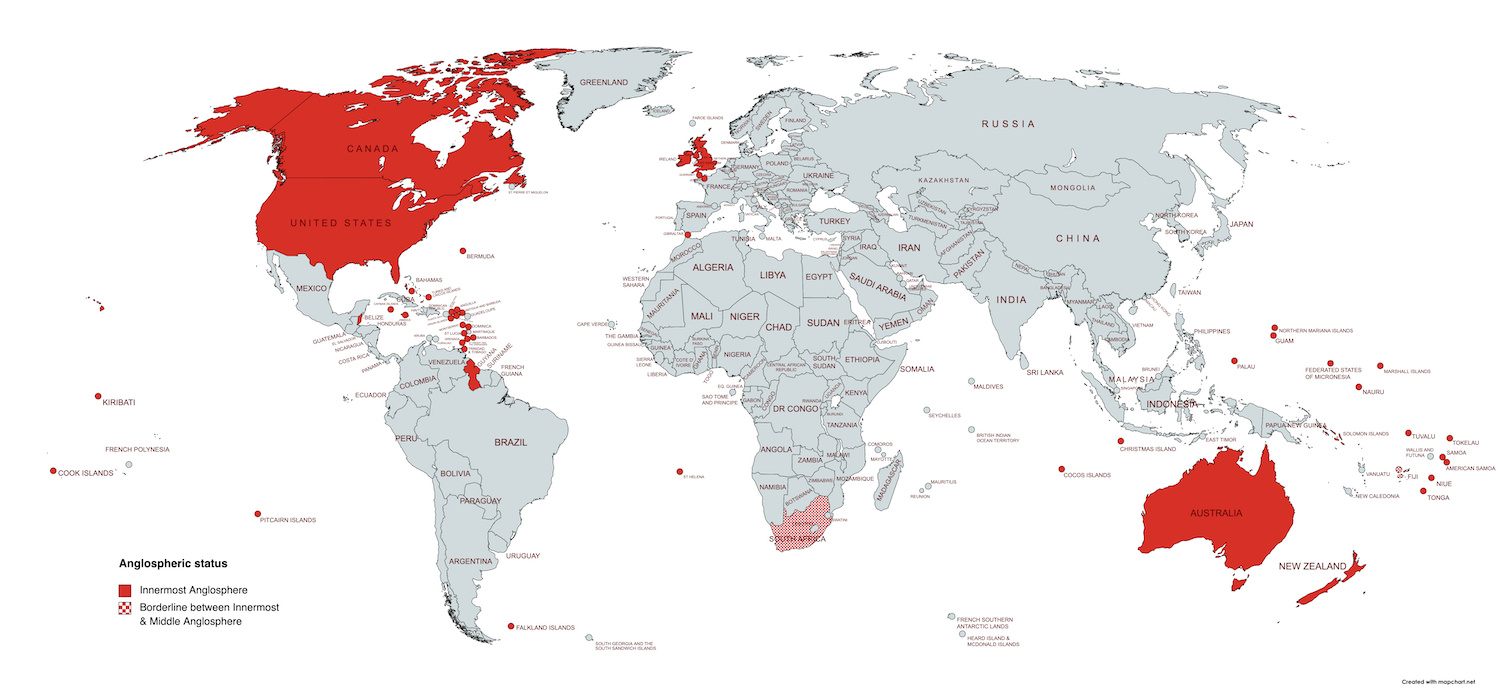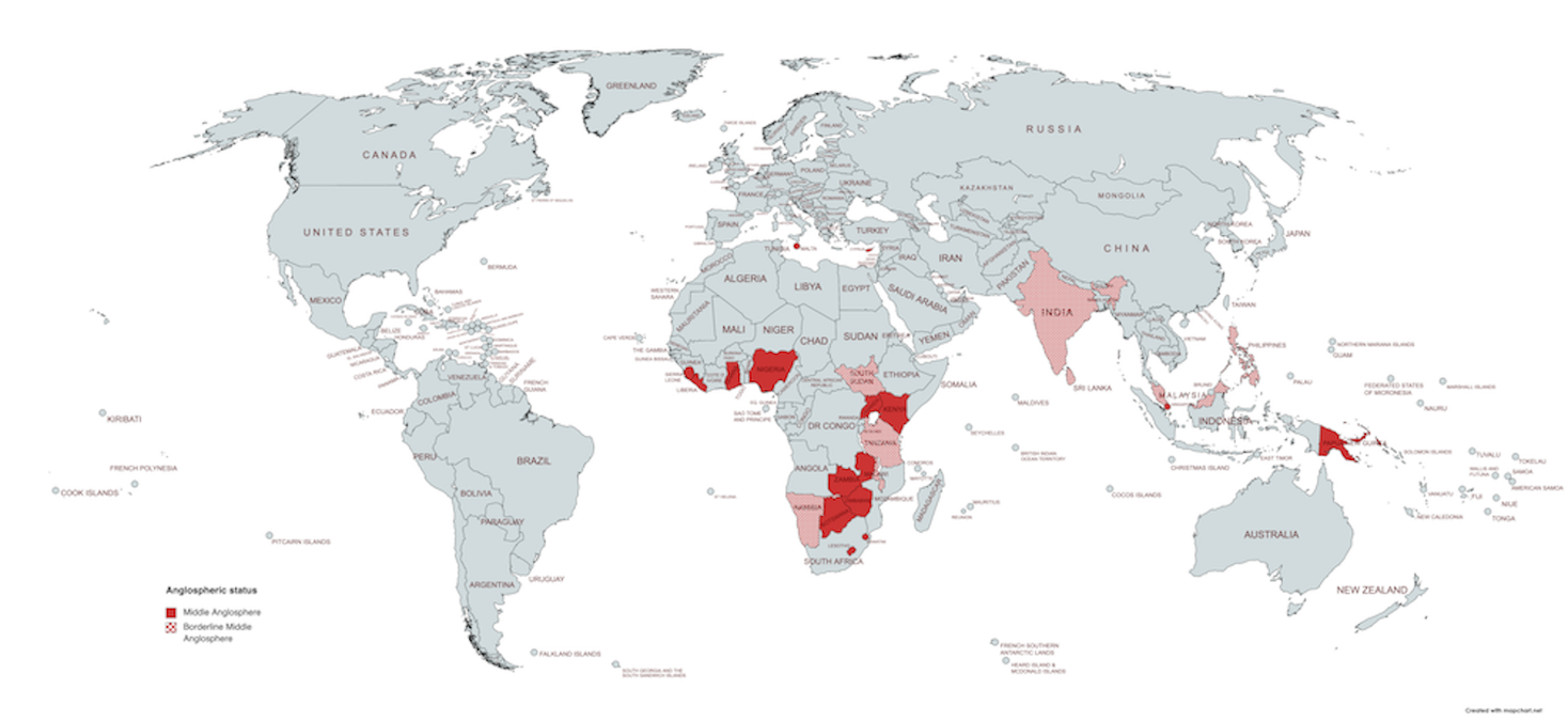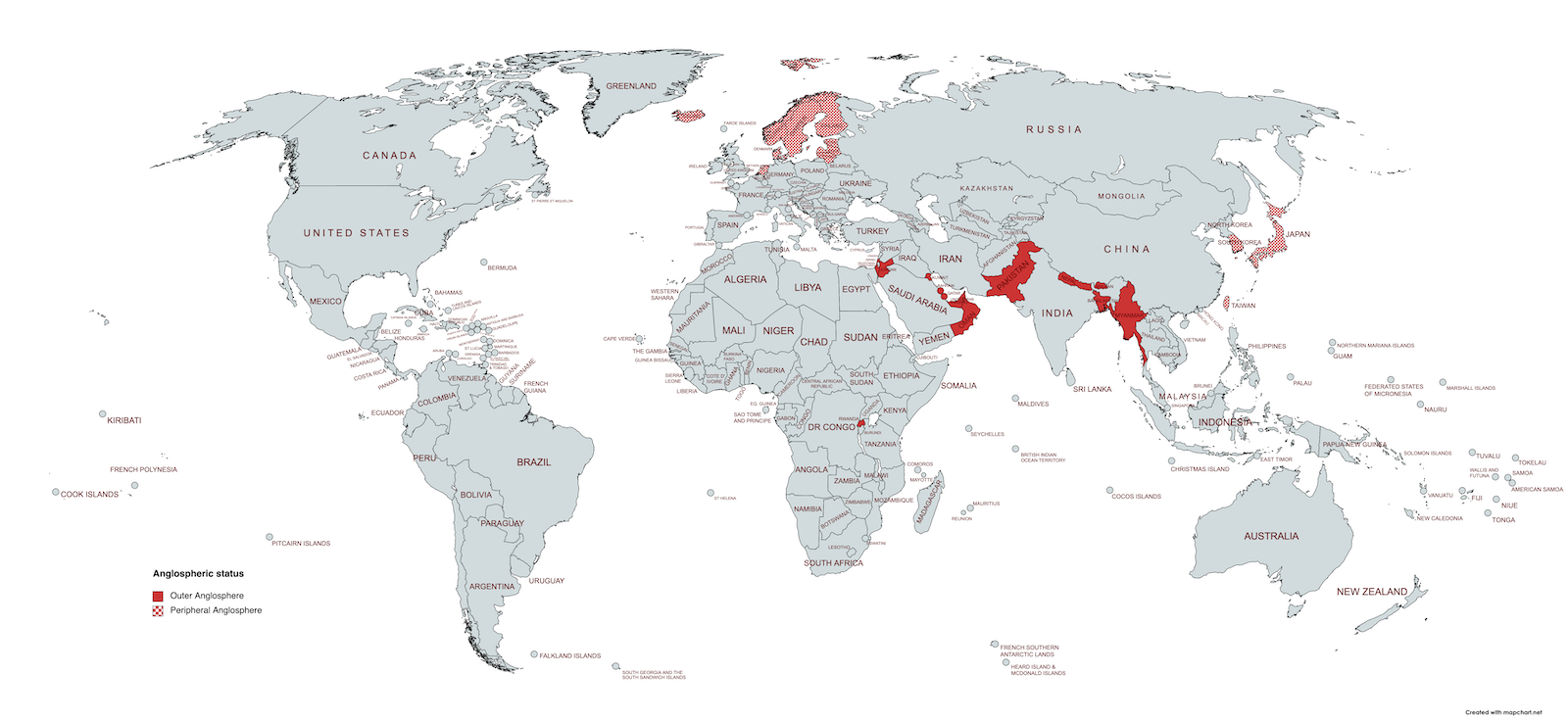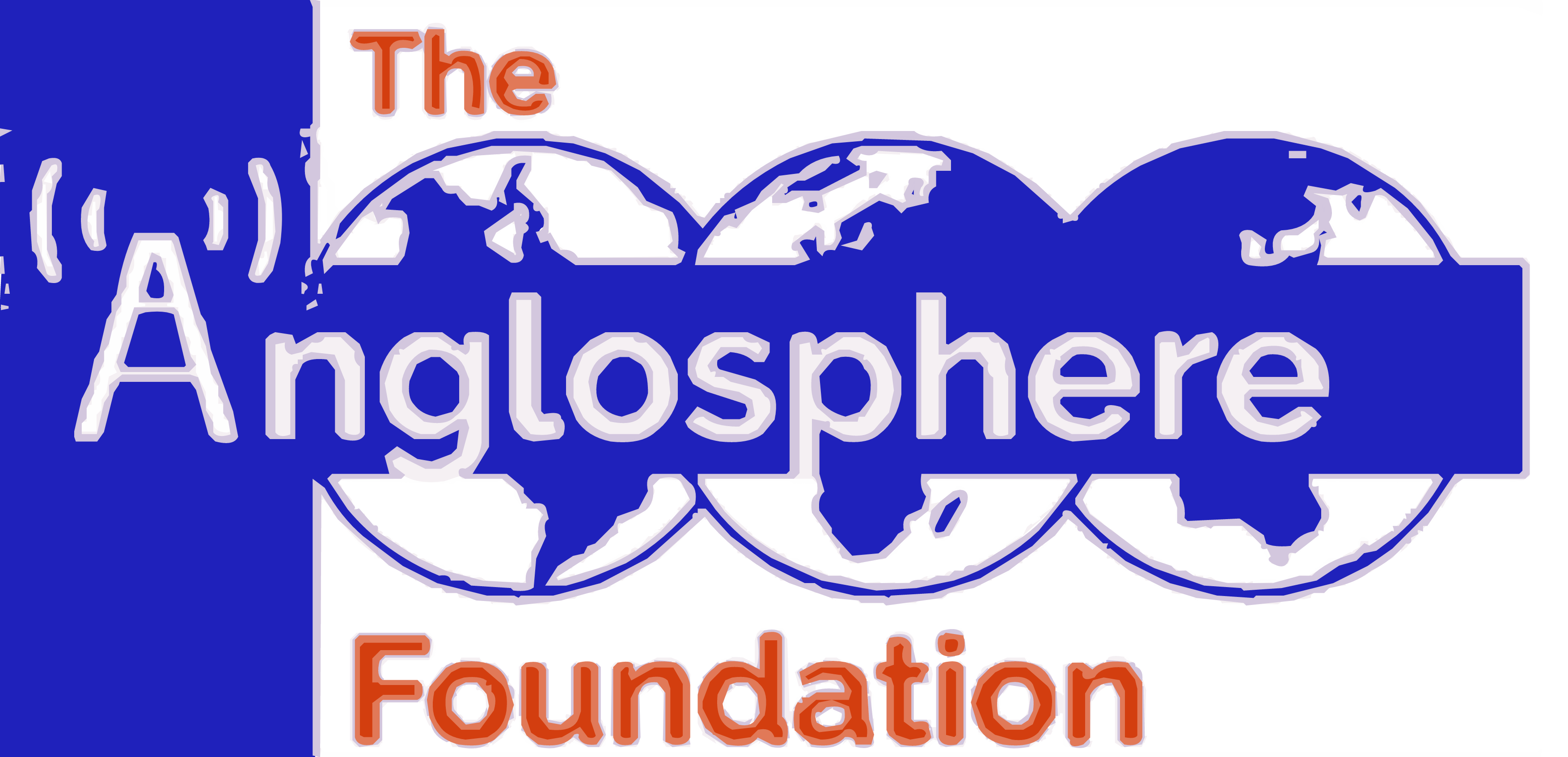The Inner, the Middle and the Outer Anglosphere
Mapping the Anglosphere by state boundaries is difficult since the concept of an ‘network’ civilisation extends across official frontiers. That said, it is possible identify those states where Anglospheric norms and practices are strongest. This does not mean these states are uniformly Anglospheric, on the contrary there will be other memetic cultural impulses that may either compliment Anglospheric norms or act in opposition to them. The maps below attempt to provide an outline of the memetic reach of the Anglosphere.
It is also important to note that the idea of a memetic ‘sphere’ applies to other cultural entities. So, for example, it is possible to speak of a Turkosphere or a Hispanosphere. These can overlap. A Hindosphere could be said to exist in its Indian home, but also coexist in parts of the Anglosphere (the US and parts of the former British Empire in East Africa, some Pacific islands and South America. At issue is how networked and developed these other spheres are in terms of people to people networks and their impact on daily life, institutions and security alliances.

Inner Anglosphere ^
The Anglosphere is a networks of peoples rather than states, however it is possible to identify areas were Anglospheric norms and values are at their densest. English is widely spoken, but other aspects are evident. These include use of Common Law, the rule of law, civil society, "my word is my bond" and individualism. Another feature is the multi-racial aspects of not just it citizenship, but its leadership. The demarcations denoted here, are not hard and fast and are contested and changing. Many of these values and norms are found in other states and in isolation are not necessarily exceptional. Taken together, these characteristics can help define distinctive outlooks both historical and contemporary. South Africa is a borderline case since Anglospheric values were contested and reversed by an Afrikanner outlook. in the post-WW2 period. The collapse of Apartheid has seen the Anglospheric tradition revived by some elements of the ANC but is increasingly challenged by illiberal vanguardism

Middle Anglosphere ^
Anglospheric norms and values exist to varying degrees outside the communities of the 'inner' Anglosphere. Often there are competing memetic impluses. As such, Anglospheric values may be reflected in institutions, some customs and practices, reinforced by the use of the English language in governance. These are not hard and fast catagories and are open to debate.

Outer Anglosphere ^
The Outer Anglosphere consists of states that have adopted some Anglospheric attributes but usually within an indigenous cultural framework. Consequently, Anglospheric norms and values are weak and in competition with often stronger and more embedded traditional memetic impulses. A seperate grouping might be described as the periperhial Anglosphere consisting of two distinct groups. The first are those Asian states that have no traditional or long-standing cultural links with the the inner Anglosphere communities. Despite this they have adopted Anglospheric systems of governance, certain customs but English is not widely spoken outside of the educated classes. As such they are insulated from many memetic that encourage interpersonal commonalities. The second group is North European and consists of those communities with ancient cultural that feature Anglo-Norse-Friesan memetic commonalties associated with popular democracy and oath-taking. These present day communities usually feature high levels of spoken English. The Baltic states are a sub-section where English useage is growing rapidly and identification with the Norse area makes them Anglospheric in nature.
The Anglosphere is based on people, but the ideas find expression through states and their behavior but there can be pockets of Anglospheric thinking within states that are not predominantly Anglospheric in composition. Two examples would be Hong Kong in the PRC and the NW and SW Provinces of Cameroon which is predominantly Francophone.
